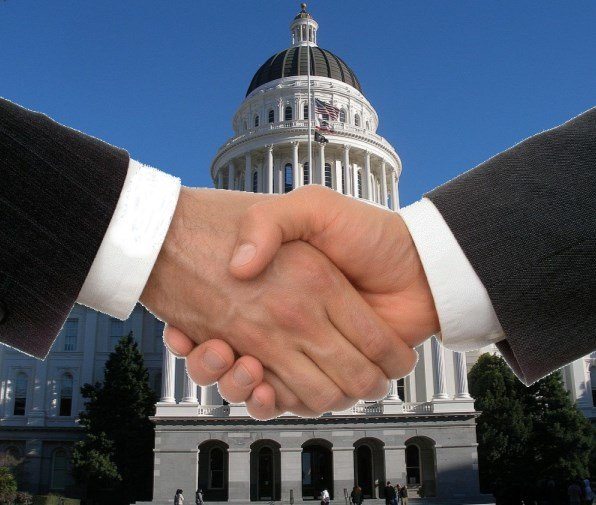Role of Corporations in Politics – Influence, Power, and Public Policy
In the landscape of modern democracy, corporations play a powerful role in shaping political agendas, public policy, and election outcomes.

In the landscape of modern democracy, corporations play a powerful role in shaping political agendas, public policy, and election outcomes. From campaign financing and lobbying efforts to regulatory negotiations and media influence, the role of corporations in politics has grown into a complex network of power dynamics that can both enhance and endanger democratic governance.
This article offers a comprehensive analysis of how corporations influence political systems—examining mechanisms, motivations, key examples, legal frameworks, and the broader implications for society and governance.
Corporate Influence: An Overview
At their core, corporations are economic entities driven by profit. However, in the 21st century, their reach extends far beyond boardrooms and marketplaces—they shape legislation, influence regulatory bodies, fund political campaigns, and sway public opinion. This blending of business interests and political power can yield both efficiencies and ethical dilemmas.
Corporate political influence manifests primarily through the following mechanisms:
-
Campaign contributions
-
Lobbying and policy advocacy
-
Political action committees (PACs) and Super PACs
-
Revolving doors of employment
-
Corporate media ownership
-
Strategic litigation and legal pressure
Campaign Financing: Money as a Tool of Power
1. Citizens United v. FEC (2010)
The landmark U.S. Supreme Court decision in Citizens United unleashed a new era of corporate influence by ruling that corporations and unions have the same First Amendment rights as individuals when it comes to political spending. This decision:
-
Allowed unlimited independent expenditures by corporations.
-
Led to the rise of Super PACs, which can spend unlimited sums to influence elections.
2. Political Action Committees (PACs)
Corporations establish PACs to donate directly to candidates who align with their interests. Although contributions are capped, PACs offer legal and organized channels for corporate political funding.
Lobbying: Shaping Policy from the Inside
The Lobbying Industry
Lobbying is a $4+ billion industry in the United States alone. Corporations employ professional lobbyists—many of whom are former government officials—to influence legislators and bureaucrats on:
-
Taxation and trade policy
-
Regulatory standards
-
Environmental and labor laws
-
Healthcare and pharmaceutical pricing
-
Defense contracts
Examples of Powerful Corporate Lobbying
-
Big Pharma influencing drug pricing legislation
-
Energy companies shaping climate and environmental policy
-
Tech giants lobbying for data privacy laws tailored to their platforms
The Revolving Door: A Cycle of Influence
The revolving door phenomenon—where corporate executives become government regulators and vice versa—further deepens the overlap between public office and private interest.
This dynamic enables:
-
Regulatory capture, where agencies serve industry more than the public.
-
Policy distortion, with laws crafted to benefit specific corporate players.
-
Ethical gray zones, as public servants negotiate private sector roles while still in office.
Media and Narrative Control
Many large corporations own or fund media outlets, influencing public discourse and election narratives. Examples include:
-
Telecommunications giants influencing net neutrality policies.
-
Energy companies sponsoring news coverage that downplays climate risks.
-
Social media platforms controlling the flow of political advertising and information.
This control allows corporations to shape public opinion, amplify political allies, and suppress dissenting voices that threaten their interests.
Legal and Ethical Frameworks
There are existing regulations that aim to limit the influence of corporations in politics, including:
-
Federal Election Campaign Act (FECA)
-
Lobbying Disclosure Act
-
Foreign Agents Registration Act
-
Securities and Exchange Commission (SEC) reporting on political contributions
However, enforcement is often weak, and loopholes are frequently exploited. For example:
-
“Dark money” organizations can receive corporate donations without disclosing donors.
-
Super PACs cannot coordinate with candidates—yet the line is often blurred.
-
Many lobbyists register as “consultants” to avoid disclosure requirements.
Global Perspectives: Corporate Political Power Around the World
While this issue is most pronounced in the U.S., corporate political influence is a global phenomenon:
-
In the EU, multinational corporations have significant sway over environmental and data privacy regulations.
-
In developing countries, corporate donations can entrench corrupt regimes and block reform.
-
In authoritarian regimes, state-run corporations function as political tools to suppress dissent.
Consequences of Excessive Corporate Influence
1. Weakening of Democracy
When corporate money outweighs citizen voices, elected officials represent shareholders, not constituents.
2. Economic Inequality
Policies that benefit large corporations often exacerbate income inequality, especially through tax breaks and deregulation.
3. Environmental Harm
Corporate lobbying has long delayed climate action, ensuring short-term profit at the expense of long-term sustainability.
4. Social Injustice
Health, housing, and education policies may be crafted to benefit private providers while marginalizing vulnerable communities.
Reforming Corporate Political Influence
Experts and advocates suggest a number of practical reforms to balance corporate power in politics:
-
Public financing of elections
-
Strengthening lobbying regulations
-
Mandatory disclosure of corporate political spending
-
Closing loopholes in PAC and Super PAC coordination
-
Imposing term limits and ethics rules to break the revolving door
Civil society organizations, independent media, and legal watchdogs must also play a key role in monitoring and exposing corporate overreach.
The Path Forward: Accountability and Transparency
Corporations will always have interests in public policy. The challenge is ensuring those interests do not override public good. A healthy democracy must create barriers between corporate power and political decision-making, fostering a system where citizens—not corporate donors—guide the future.







































































![https //g.co/recover for help [1-866-719-1006]](https://newsquo.com/uploads/images/202506/image_430x256_684949454da3e.jpg)























![[PATREON EXCLUSIVE] The Power of No: How to Say It, Mean It, and Lead with It](https://tpgblog.com/wp-content/uploads/2025/06/just-say-no.jpg?#)
























































